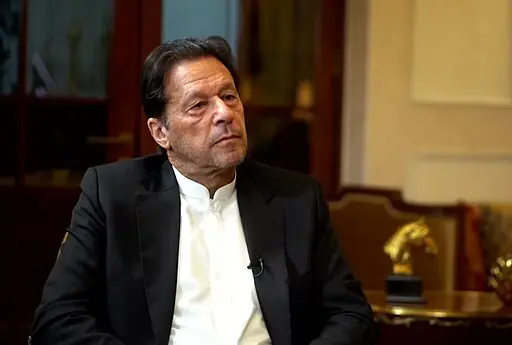Authorities restrict public gatherings in key cities as Imran Khan’s party prepares for mass demonstrations across Pakistan
In response to the planned nationwide protests led by Imran Khan’s Pakistan Tehreek-e-Insaf (PTI) party, Pakistani authorities have imposed Section 144 in Punjab and Islamabad. This legal measure, which restricts public gatherings and demonstrations, aims to prevent potential unrest as Khan’s supporters mobilize across the country.
Section 144 is a law that prohibits the assembly of four or more people in a specific area, intended to curb public disorder and maintain law and order. The decision to implement this restriction follows the PTI’s announcement of large-scale protests to demand political reforms and address grievances against the current government.
Embed from Getty ImagesImran Khan, the former Prime Minister and leader of PTI, has been vocal about his dissatisfaction with the current administration, accusing it of mismanagement and corruption. His party’s call for nationwide protests reflects growing public frustration with the state of governance in Pakistan.
The imposition of Section 144 is seen as a preventive measure to avoid clashes between protestors and law enforcement, which could escalate into violence. Authorities are concerned that large demonstrations could lead to significant disruptions and security challenges, especially in the capital city of Islamabad and the populous province of Punjab.
The move has sparked reactions from various political and civil society groups, who argue that such restrictions limit democratic freedoms and the right to peaceful assembly. Supporters of Khan’s party claim that the government’s actions are an attempt to stifle dissent and suppress legitimate political expression.
As Pakistan braces for potential disruptions, the enforcement of Section 144 underscores the heightened tensions in the country’s political landscape. The outcome of these protests could significantly impact Pakistan’s political stability and future governance.
Analysis:
Political:
The imposition of Section 144 highlights the deepening political crisis in Pakistan, reflecting the government’s apprehension towards mass mobilizations by opposition parties. By restricting public gatherings, the government aims to curb the influence of Imran Khan’s PTI, which has been a vocal critic of current policies. This move can be seen as a strategy to maintain control and avoid potential upheaval, but it also signals escalating political tensions and the contentious nature of Pakistan’s political environment.
Social:
The restrictions imposed by Section 144 have significant social implications, particularly regarding citizens’ rights to protest and express dissent. The PTI’s planned protests are driven by widespread dissatisfaction with governance, reflecting broader societal frustrations. The limitation on public gatherings can stifle public discourse and limit the ability of ordinary citizens to engage in collective action. The response to these restrictions could further polarize social opinions and impact community mobilization.
Racial:
The impact of Section 144 on different racial and ethnic groups in Pakistan can vary, depending on regional and local dynamics. In Punjab, which has a diverse demographic profile, the restrictions may disproportionately affect certain communities and political activists. The enforcement of Section 144 can exacerbate existing tensions and contribute to feelings of marginalization among various racial and ethnic groups, influencing their engagement in political activities.
Gender:
The restrictions on public gatherings under Section 144 have implications for gender dynamics, particularly concerning women’s participation in protests. Women activists and supporters of PTI may face additional challenges in expressing their political views and participating in demonstrations. The limitations imposed by the government could impact gender representation in public protests and influence the broader discourse on gender rights and political participation in Pakistan.
Economical:
The economic impact of Section 144 includes potential disruptions to business activities and local economies due to the restrictions on public gatherings. Protests and demonstrations can lead to economic instability, affecting daily commerce and causing disruptions in key areas. The government’s focus on preventing unrest also indicates concerns over potential economic consequences of widespread protests, such as damage to infrastructure and loss of productivity.
